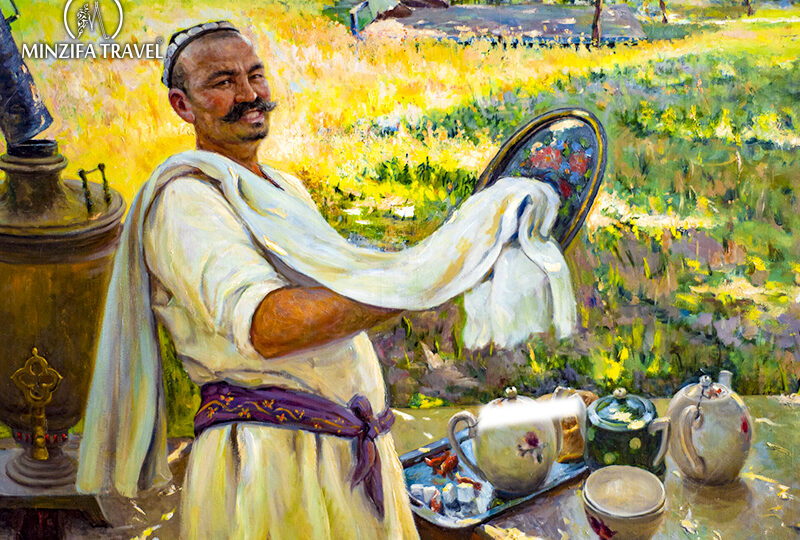Hospitality is a vital principle of all the peoples of the East and one of the characteristic features of the people of Uzbekistan. Not accepting a guest or not giving him due respect means to disgrace the family, clan, and makhalla.
Uzbek families in the majority are very large, as a rule, several generations live under one roof, and to disgrace the family means, first of all, to show disrespect to the elders. And this is a terrible transgression, because honoring the elders is one of the main commandments in Uzbekistan.
Today, the laws of hospitality have become just a good habit, very helpful in everyday life. But in order to be among the pleasant guests, you need to know a few simple rules.
If you are invited to dinner or supper in an Uzbek family, you should definitely say yes, otherwise you will offend the hosts. You should come to the appointed time, it is better to bring small gifts to invitees or sweets for the children. Entering the house, greet everyone present, shaking hands is better only with men. In order to greet, give the right hand with an open palm, the left hand covering the wrist of the greeting person shaking. During this ceremony it is not out of place to ask how things are and to inquire about health.
Other guests are greeted at a distance with a slight nod of the head and a right palm to the heart. A handshake with the woman is justified only if she first extends the palm, in any case do not start to pay her close attention – it is a sign of disrespect.
Hospitality is the life principle of all the peoples of the East!
Then the master of the house will invite you to the table, take off your shoes at the threshold and remember to sit down strictly on the specified place, because the guests are seated according to the hierarchy and the further your place from the entrance, the more respect you are honored. Don’t wait that a pretty neighbor will be near you, women and men are usually at different tables in order not to embarrass anyone and not to interfere in important conversations. When all invited people are at their places, the elder reads a short prayer wishing happiness and prosperity to the house, then the master of the house offers everyone present to drink tea and only after all these formalities one can start a meal.
Any meal begins and ends with a tea ceremony. Sweets, pastries, dried fruits and nuts, fruits and vegetables are served first, followed by appetizers, and only at the end is the obligatory pilaf or other festive dish.
